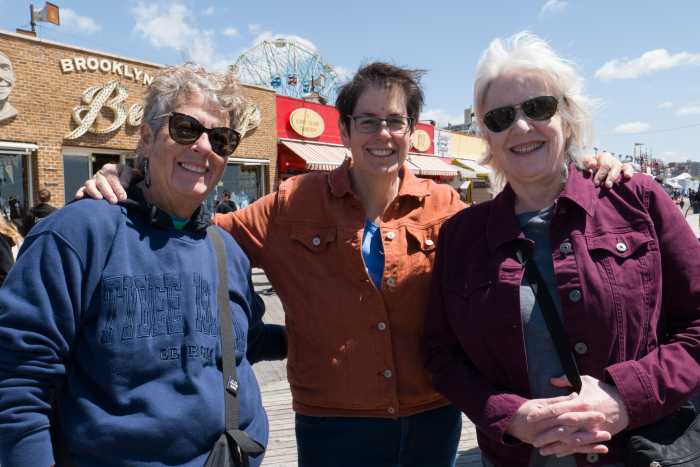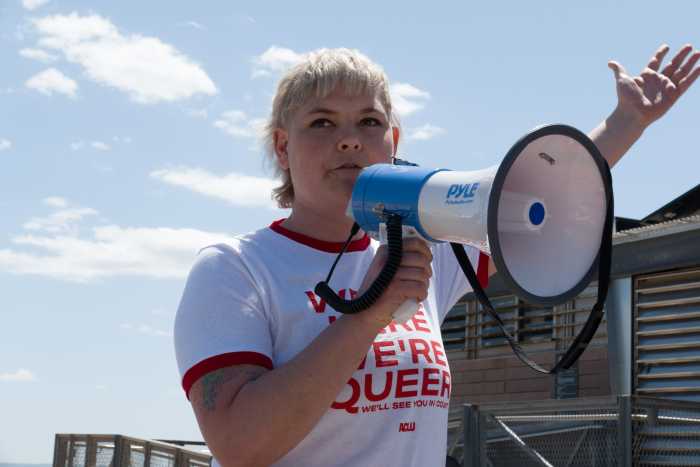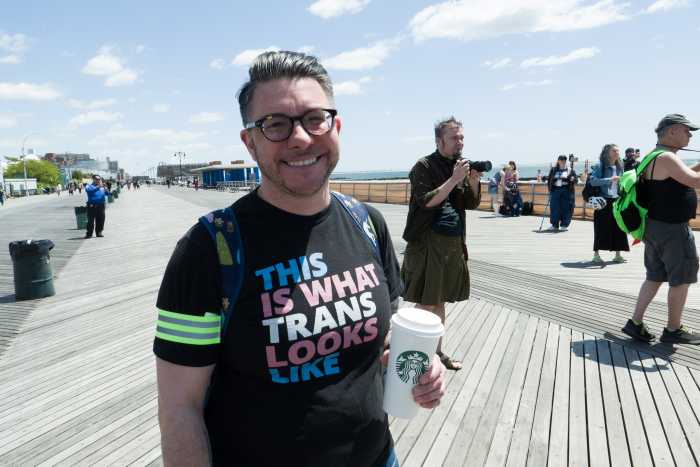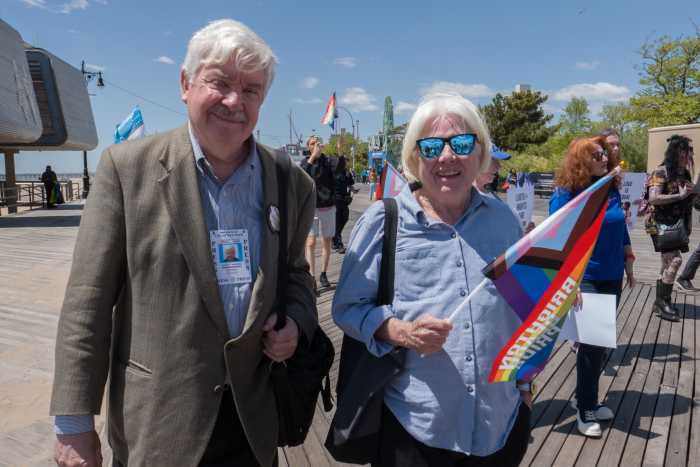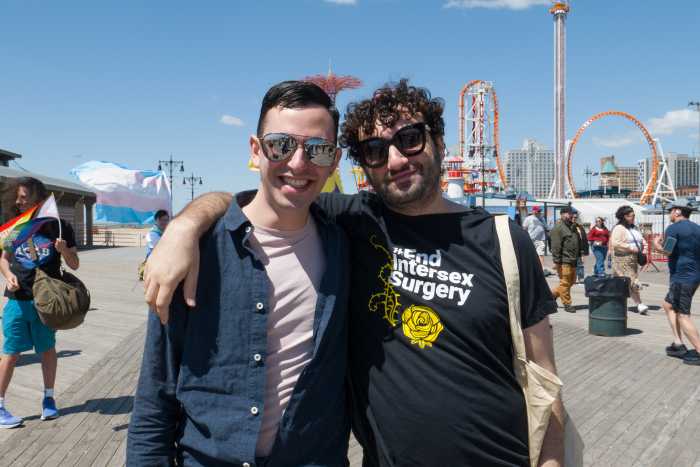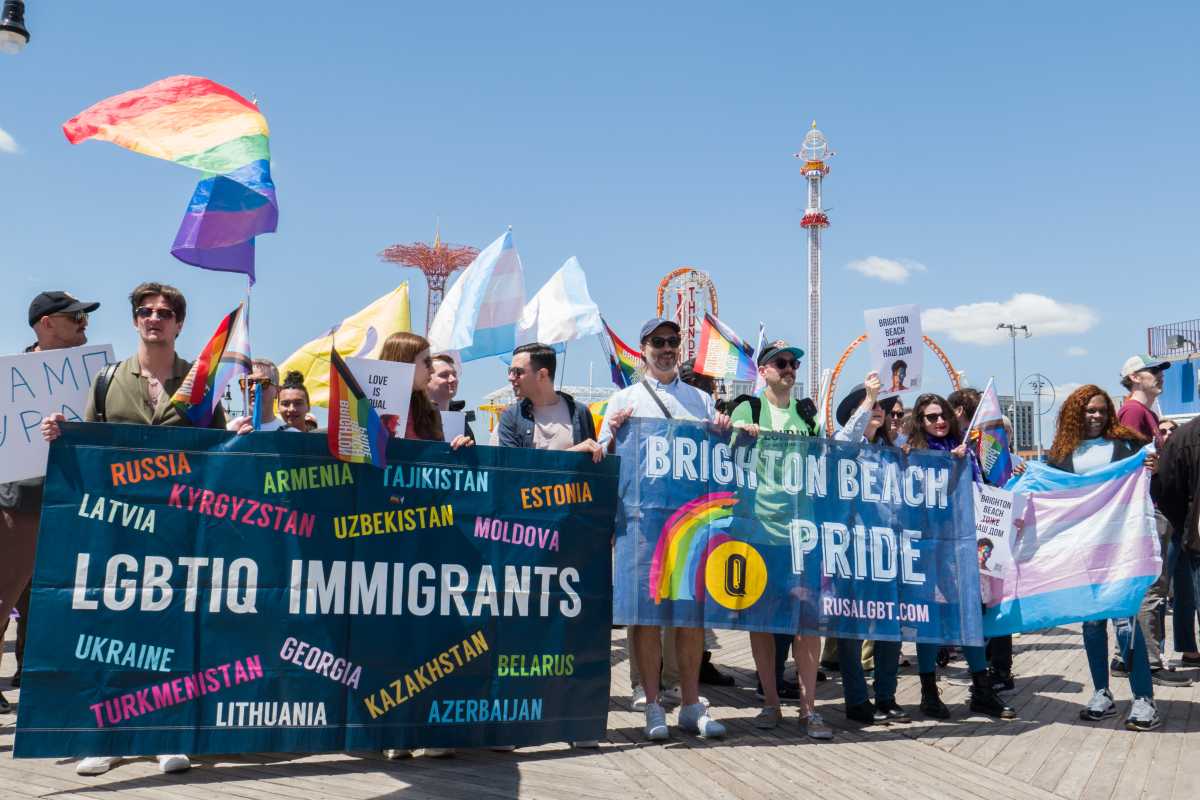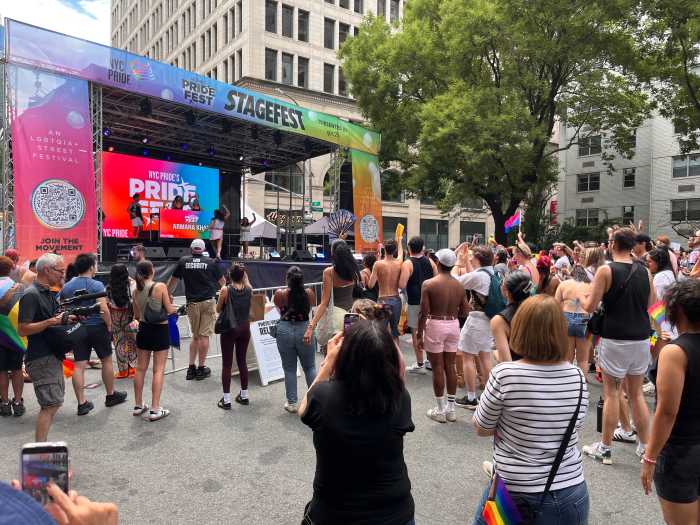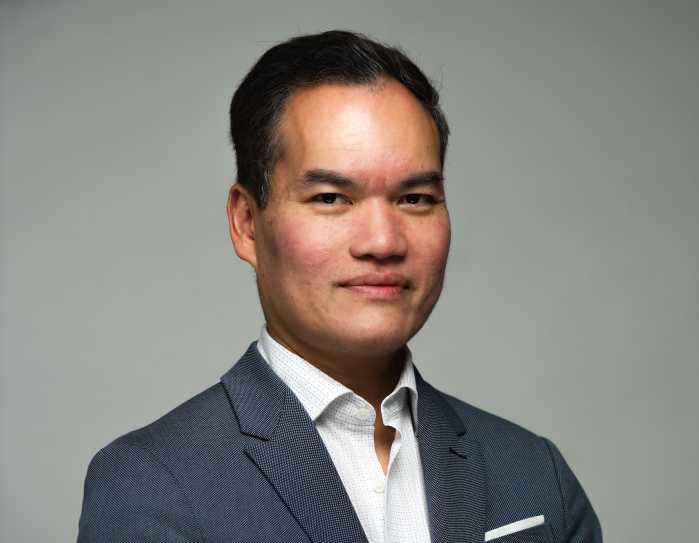Brighton Beach Pride kicked off its ninth annual march on May 10 along the Riegelmann Boardwalk.
Until this year, Brighton Beach Pride has been organized by RUSA LGBTQ+, a non-profit advocacy group for queer Eurasian identities. This year, RUSA LGBTQ+ was officially renamed to Qaravan in order to better represent all identities in the community and to protest the Russian invasion of Ukraine.
“We started marching nine years ago when it was Trump’s first administration, so we already have some experience with that,” Maxim Ibadov, Qaravan’s national coordinator, said as flag-bearing attendees, local district leaders, and press gathered on the boardwalk. “But things are so much more escalated this year — there is a real fear of ICE showing up here.”
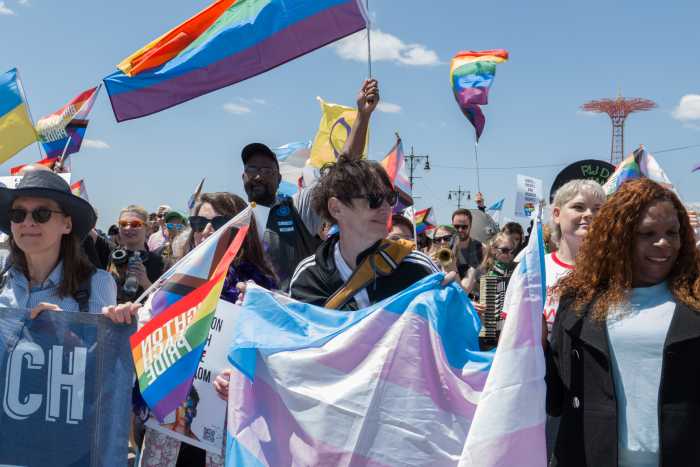
When Ibadov first posted the event on the social media app Nextdoor, one commenter replied with the ICE tip line.
“[The comment] was a way to intimidate us,” Ibadov said, “but we won’t be intimidated. We’re prepared. We’re not capitulating, we’re not canceling pride.”
Over the megaphone, Ibadov declared that this year’s theme was the defense of immigrants’ rights, a cause that should hit home with the majority of Americans and especially New Yorkers. “Unless you are Native American and indigenous to this land, we are ALL immigrants!” Ibadov said.
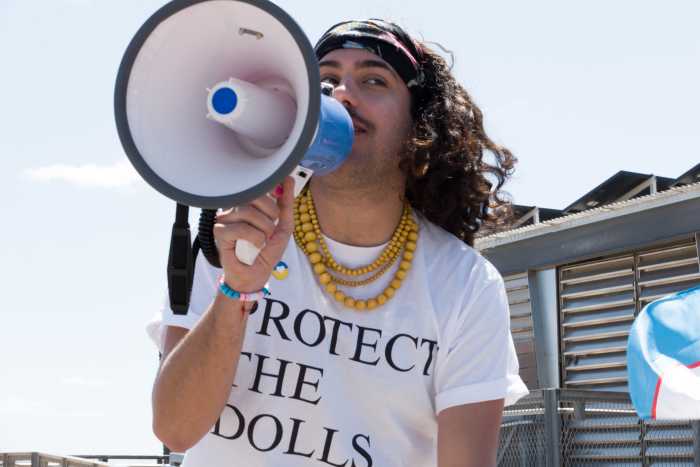
“Now, everybody say ‘love!’”
“Love!” The crowd chanted back as passersby lined up along the opposite side of the pathway, or trickled out from the aquarium’s boardwalk entrance to watch the march. Some were expressionless; others cheered on in solidarity.
“Everybody say ‘LOVE!’” Maxim repeated.
“LOVE!” the crowd said, louder this time. And they were off.
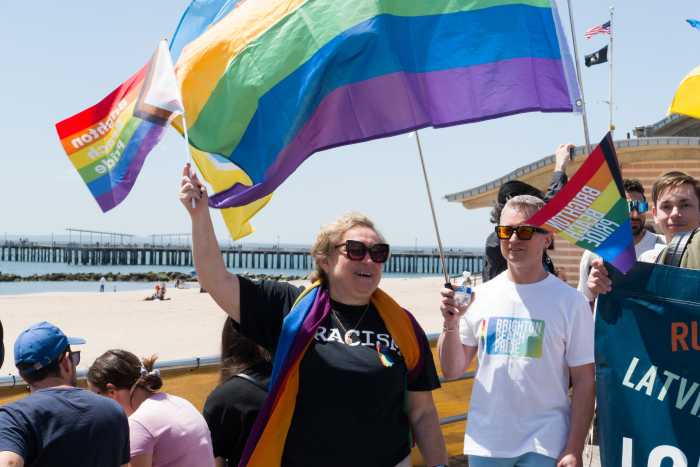
Yelena Goltsman founded what is now known as Qaravan in 2008. Lyosha Gorshkov, who was a co-president of the organization, came up with the original idea to start Brighton Beach Pride in 2015.
“[The previous name of the organization] did not represent the full scalable spectrum of the people [in our communities],” Gorshkov said in an interview with Gay City News on May 8. “The organization has grown and needed to be rebranded. So it’s the perfect time for that.”
The name Qaravan, similar to the English word caravan, is a unique homophone across the Slavic languages. The concept of a caravan of travelers or pilgrims resonates not only with immigrant communities displaced by war, but also with Russian-speaking queer individuals looking for community in historically conservative South Brooklyn neighborhoods.
“I think it contributes to the nomadic identities of immigrants because we are not technically settled yet,” Gorshkov said.
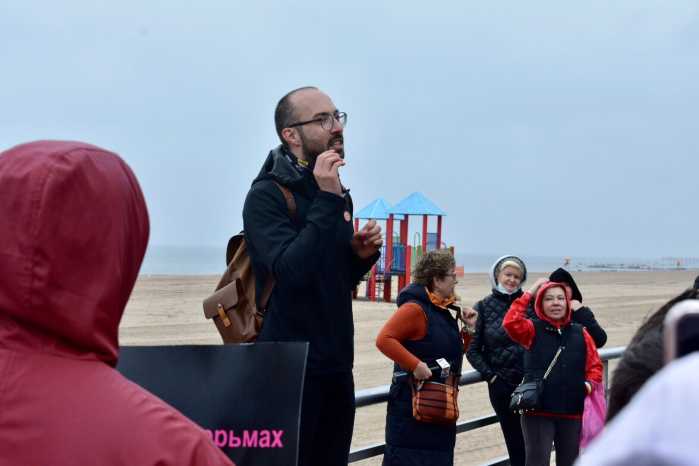
Gorshkov was born in Russia, but was exiled to the US after advocating for LGBTQ+ rights as an openly queer professor. Most of the Brighton Beach population is made up of immigrants, with less than a quarter of its residents born in the US.
“In our language there is an old proverb: ‘Dog barks and caravan still moves along,’” Gorshkov explained. “So you can interpret that as despite the fact that people criticize, the caravan still moves on. The caravan still processes. We move forward.”
The key change occurred when the march arrived at a line of police barricades marking the end of Coney Island and the beginning of Brighton Beach proper. Ibadov took the opportunity to warn marchers that they may be heckled or confronted by passersby, as has happened during previous marches, but to keep processing nevertheless. Law enforcement was on site and focused on de-escalating any negative interactions between community members and marchers.
“It doesn’t matter where you come from, it matters where you’re going — and that’s why we’re QARAVAN!” Ibadov said over a steady drum beat from the Rude Mechanical Orchestra.
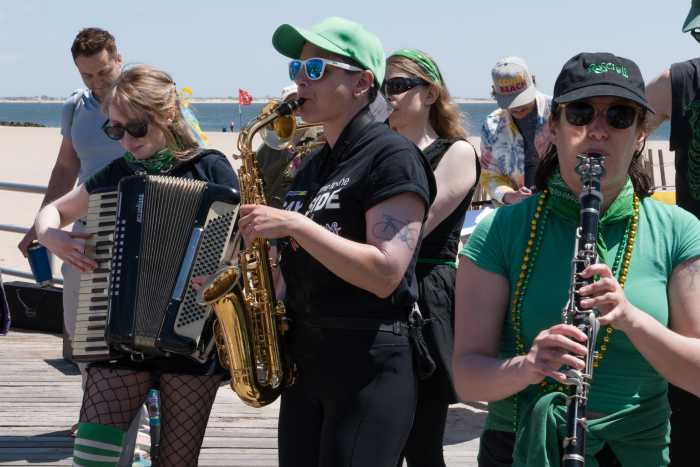
The march ended at the Brighton Beach portion of the boardwalk at Coney Island Avenue. There, speakers took to the stage — a weathered bench overlooking a backdrop of brilliant blue sky and windswept beach — to offer messages of hope and resistance to marchers.
Most notable among speakers was legendary gay rights activist Randolfe “Randy” Wicker, who made queer history in the years before Stonewall when he took part in a “sip-in” demonstration at Julius’ Bar in a successful attempt to bring attention to homophobic laws barring establishments from serving queer customers. Wicker, who also witnessed the Stonewall Riots in 1969 and lived with fellow activist Marsha P. Johnson, walked the entire route.
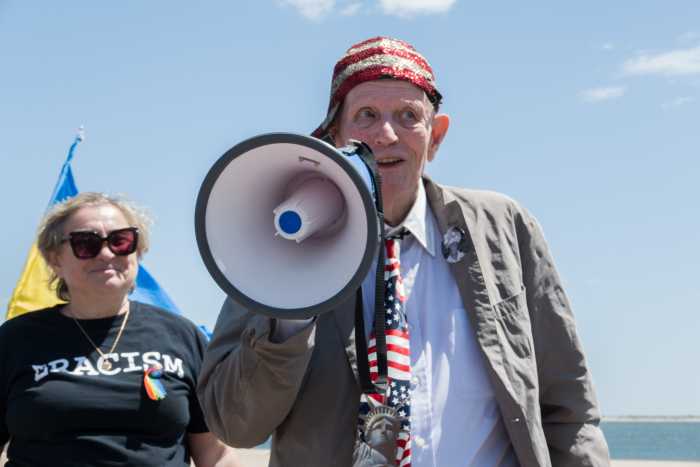
Wicker was handed the megaphone from his position on the boardwalk, but he refused it. Instead, organizers rushed to support the 87-year-old as he climbed onto the bench and then accepted the megaphone.
“I remember the McCarthy era well,” Wicker said, “and I can tell you that McCarthyism is nothing compared to what we’re going through right now.”
Wicker recalled his history with fighting for gay and transgender rights, and promised to return the following year for the 10th Brighton Beach Pride.
“We are by definition a community that is DEI,” he said. “And that’s why we need to keep marching.”
See some more photos below:
